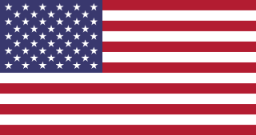April 24 (Reuters) – Some of the world’s largest solar equipment makers on Wednesday asked President Joe Biden’s administration to impose tariffs on panels and cells from four Asian countries to protect billions of dollars in investments in U.S. manufacturing. Seven companies – Korea’s Hanwha Qcells, Switzerland’s Meyer Burger, Norway’s REC Silicon and U.S. companies First Solar Inc, Convalt Energy, Mission Solar and Swift Solar – are behind the petitions filed with the U.S. Department of Commerce and the International Trade Commission, they said in a statement.
The American Alliance for Solar Manufacturing Trade Committee is accusing Chinese companies with factories in Malaysia, Cambodia, Vietnam and Thailand of flooding the U.S. market with panels priced below their cost of production. That has caused prices to collapse by more than 50%, threatening their U.S.-made products, they said.
If the case is successful, companies that import panels to install on rooftops or build large-scale solar power plants could face higher prices within months.
The Biden administration has raised the alarm in recent weeks over China’s massive investment in factory capacity for clean energy goods, and Treasury Secretary Janet Yellen has said the U.S. is evaluating trade remedies.
Biden’s landmark climate change law, the Inflation Reduction Act, includes incentives for companies that produce clean energy equipment in the United States.
Since its passage in 2022, solar companies have announced more than 40 factories representing nearly $13 billion in investment, according to projects tracked by the clean energy business advocacy group E2.
But in recent months many of those companies have voiced concerns about stepped-up competition from China that is already hammering factories in Europe.
The petitioning companies are asking the U.S. Commerce Department to impose anti-dumping and countervailing duties that would offset the impact of foreign subsidies and ensure the products are priced at fair market value.
The trade case is expected to last about a year, though tariffs could be levied as soon as Commerce makes a preliminary ruling in about four months for countervailing duties and six months for anti-dumping duties.
…
